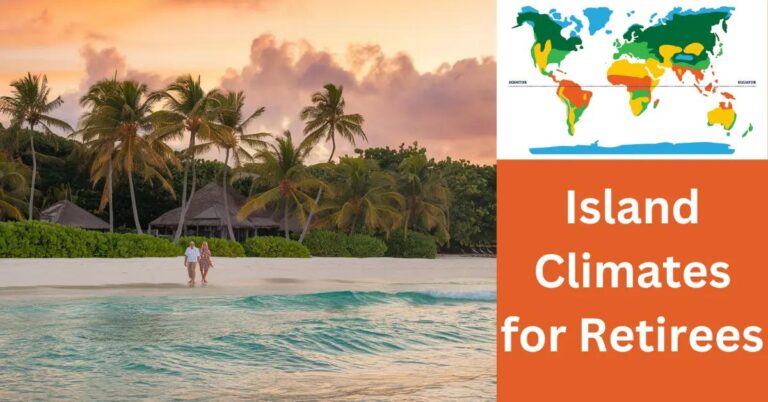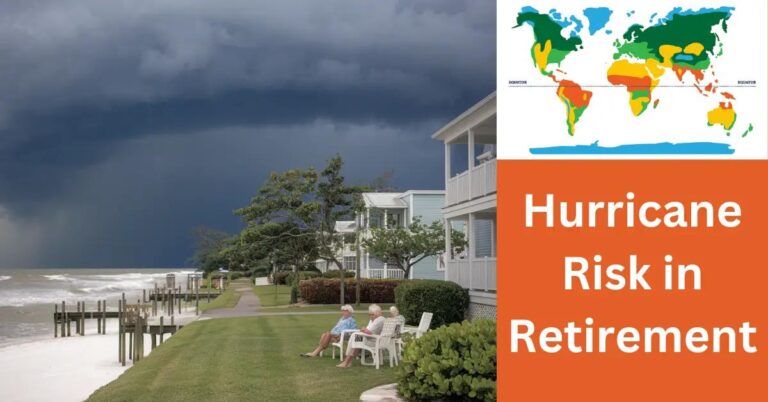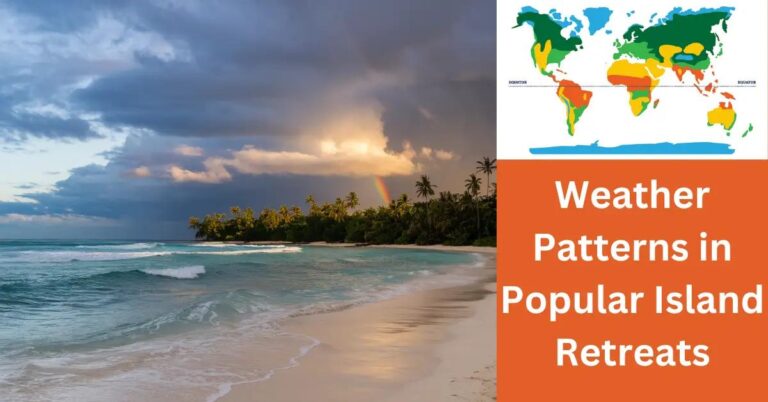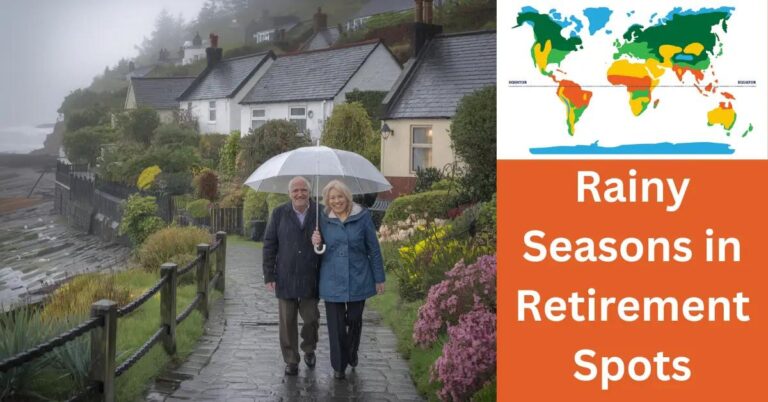TL;DR:
- Weather Patterns: Caribbean has a tropical climate; two main seasons: dry (Dec-May) and rainy (Jun-Nov). Average temperatures range from 75°F to 85°F.
- Preferred Islands for Retirees: Aruba, Barbados, and St. Lucia have desirable climates; Aruba is outside the hurricane belt and has low rainfall.
- Living Costs: Varies by island; Jamaica and the Dominican Republic are cost-effective, requiring $1,200-$1,800/month. Roatan is economical and safe.
- Community Integration: Engage through events and festivals. English is widely spoken.
- Healthcare & Transport: Quality varies; larger islands like Bahamas and Barbados have better healthcare. Public transport is available.
- Leisure: Retirees enjoy beaches, cultural events, and water sports. Plenty of activities for active retirement.
Dreaming of retiring in the Caribbean? Let's dive into the weather patterns you can expect. From sun-kissed shores to warm breezes, each island tells its own climate tale. Do you yearn for balmy days or prefer the occasional Caribbean rain? This guide will help you navigate through the island climates and discover the best spots for retirees. Ready to find your perfect weather match in paradise? Let's get started.
What are the weather patterns in the Caribbean?
The weather in the Caribbean is usually warm and sunny. Most islands have a tropical climate with high humidity. Temperatures are usually between 75°F to 85°F all year. However, some islands have unique climates due to their locations. Some might get more rain or be cooler because of mountains.
In general, the Caribbean has two main seasons: the dry season and the rainy season. The dry season is from December to May. This time is less humid and has cooler winds called trade winds. Many people think this is the best time to visit the islands.
The rainy season lasts from June to November. During this time, the islands experience more rain and storms. But it does not mean there is rain every day. Often, it rains in short bursts, followed by sun.
The Caribbean rain patterns can vary. Some islands, like the Bahamas and Aruba, get less rain. Others like Dominica have rainforests and get more rain. Knowing about rain patterns can help when planning to live on an island.
Monthly temperatures can also vary between islands. For example, islands like Barbados stay warm most of the time. But, others like Guadeloupe can have slight changes in temperature.
Geographical location affects the climatic differences among islands. Islands closer to the equator have less variation in weather. Islands that are more mountainous might have cooler areas and get more rain. This means some islands can be better if you like steady, warm climates. Others can have different weather to enjoy. Choosing the right island depends on what climate you prefer for your retirement.
How does the Caribbean climate differ throughout the year?
The Caribbean shines with a climate that's warm and inviting all year. Yet, the region experiences two distinct seasons: the dry season and the rainy season. Understanding these can help you choose the best time to enjoy this tropical paradise.
Dry Season Characteristics
The dry season lasts from December to May. During this time, you can expect less rain and plenty of sunshine. The temperatures hover around 75°F to 85°F. This is the best time to enjoy outdoor activities like beach visits and nature hikes. It's also the peak tourist season due to its pleasant weather.
Rainy Season Details
The rainy season spans from June to November. The weather changes with occasional rain showers and storms. However, it doesn't rain all day, providing opportunities for activities between showers. Temperatures during this season are similar to the dry season but with higher humidity.
Impact on Daily Life
The shift between seasons can affect daily life in the Caribbean. It's important to dress light and stay hydrated, especially during the rainy season. The humidity can be intense, impacting outdoor activities. Despite this, many enjoy the rich greens and peacefulness that the rain brings.
Adapting Your Lifestyle
To adapt to the Caribbean's climate changes, plan your activities wisely. During the dry months, enjoy open-air activities, and in the rainy months, explore indoor attractions or short, weather-friendly excursions.
Preparing for Hurricane Season
While not every year is stormy, hurricane season coincides with the rainy period. You should always prepare a safety plan and stay informed about weather updates. Find more details on preparing for hurricanes in our guide on hurricane preparedness.
To sum up, the Caribbean offers diverse experiences throughout the year. By understanding its seasonal rhythms, you can enjoy delightful weather during your retirement.
Which Caribbean Islands Offer the Best Weather for Retirees?
When considering retirement in the Caribbean, weather is a key factor. Warm weather year-round is a dream for many retirees. Islands like Barbados, Aruba, and St. Lucia offer just that. These places boast a mild and pleasant climate with few weather disruptions. Imagine waking up every day to sunshine and clear skies.
So, what is the best Caribbean island for retirees based on climate? The island of Aruba stands out. It is known for its temperate climate and low rainfall. Aruba offers an inviting environment for those seeking consistency in their daily weather.
But are there popular retiree hotspots in the Caribbean? Indeed, there are several. For many, Barbados and St. Lucia are prime choices. These islands not only offer beautiful weather but also have vibrant local cultures. With lively Caribbean nightlife, they ensure that life remains fun and engaging.
Let’s compare the climates of these popular retiree hotspots. Aruba typically enjoys a dry climate, unlike the more humid Barbados and St. Lucia. All three have sunny days, yet their rain patterns differ. Barbados sees more rainfall, mostly during the wet season. St. Lucia experiences similar weather, with lush greenery to show for it.
Factors influencing climate suitability for retirees include hurricane frequency and seasonality. Islands like Aruba are located outside the hurricane belt, which means fewer weather disruptions. This geographic advantage makes it appealing to those wary of storm risks.
For retirees, community also plays an important role. Many islands host retirement communities that offer a blend of social activities and support. Knowing there's a friendly environment to welcome you makes the weather even sweeter. To dive deeper, check this helpful guide on choosing the right Caribbean island.
What is the Cost of Living and Safety in the Caribbean for Retirees?
When considering retirement in the Caribbean, knowing the cost of living is key. The average cost can change based on the island and lifestyle choices. Places like Jamaica or the Dominican Republic often have lower living expenses. You might need about $1,200 to $1,800 per month, covering housing, food, and other living needs. However, islands like Bermuda might demand higher budgets.
Safety is another big factor to consider. Some islands like Saint Barts and the Cayman Islands have high safety records. They are often seen as safe for retirees, with low crime rates and secure communities. But, it's important to know that safety can vary even within an island. Research is vital to find the best areas.
So, what is the cheapest and safest Caribbean island to live on? Based on costs and safety, Roatan in Honduras is a great choice. It offers a low cost of living and a stable environment. Roatan provides a good blend of affordability and safety, which many retirees seek.
How much money do you need to retire comfortably in the Caribbean? It really depends on personal comfort and tastes. Living frugally might allow you to spend less than $2,000 monthly. But if you prefer more luxury, costs can double. A balanced budget considers both essentials and leisure activities.
When choosing an island, think about how costs and safety fit your lifestyle. Some spots offer great savings but might lack certain amenities. On the other hand, pricier islands often have better facilities and services. Balancing between cost and lifestyle preferences is key for a satisfying Caribbean retirement.
How Can Retirees Integrate into Caribbean Communities?
Joining a Caribbean community can be thrilling for new retirees. To fit in, it's important to know how to connect with both locals and expats. Many islands have lively expat communities in Caribbean regions. Begin by attending local events and festivals. These gatherings showcase the vibrant heritage and offer a chance to engage with locals.
How do retirees join local Caribbean communities? Precision: They start by attending local events and festivals. These occasions allow you to meet people in a relaxed setting. Dive into activities like music and dance shows. They reflect the soul of Caribbean culture. Exploring these events helps break the ice and form bonds.
Community events are not just about fun; they’re gateways to real interactions. In such events, friendships bloom, and retirees often find themselves invited to join local clubs or groups. From gardening collectives to reading clubs, there are plenty of interest groups to match your likes.
Language doesn't have to be a barrier in your new home. English is widely spoken. However, a few islands have language diversity, such as Spanish or French influences. A simple effort to learn basic phrases can be a big step. It shows respect and a keen interest in engaging with locals.
Caribbean culture is vibrant and diverse. Embrace various traditions like Carnival. You’ll find laughter, music, and dance. Participating or even just observing these traditions deepens your understanding of the local way of life.
Finding your place in a Caribbean community involves blending in with both expat and local circles. By immersing yourself in local cultural activities, you’ll enjoy a richer retirement experience. Engage, explore, and let Caribbean culture enrich your life in ways you never imagined.
What Amenities and Services are Available for Retirees in the Caribbean?
When retiring to the Caribbean, healthcare is a big concern. How is healthcare for retirees in the Caribbean? The healthcare quality varies. Larger islands often have well-equipped hospitals. For instance, the Bahamas and Barbados offer high standards of care. Smaller islands might have fewer resources. It's wise to research and possibly buy health insurance.
Transport options are another thing people often ask about. What is the infrastructure like for retirees? Public transportation is available in major areas. Buses and taxis cover most regions but can be crowded. Owning a car remains a popular choice among many retirees. Some islands have vibrant private transport services catering to expats.
Retirees also care about connectivity and daily costs. Internet access is increasingly reliable. In nations like Jamaica, Barbados, and Trinidad and Tobago, speeds meet modern needs. Energy costs might be higher than what you are used to. Factor this into your budget when moving.
Utilities like water and electricity are generally stable but may cost more. Islands work tirelessly to improve their infrastructure to cater to both locals and expats. Plan your utility expenses wisely to avoid surprises.
For those seeking the sun and sand, essential services are crucial. Accessing these services begins with understanding local systems. It is helpful to get a local advisor or contact the local expat community to guide you through the setup. They assist with paperwork and help in understanding local procedures.
Retiring in the Caribbean offers many joys. Careful planning around healthcare, transportation, and utilities ensures you relish your new life. Research each island. Your preferences, whether urban conveniences or rustic charm, can shape your experience.
What are some leisure and recreational opportunities for retirees in the Caribbean?
When you retire to the Caribbean, leisure takes on a unique flavor. What leisure activities are available for retirees in the Caribbean? One of the biggest draws is the sheer variety of retiree activities in the Caribbean. You can spend your days exploring iconic beaches and soaking in breathtaking sunsets. Imagine ending a day with a sky painted in shades of orange and purple by the sea. This simplicity can bring a lot of joy in retirement.
But, life is not just about kicking back. Retirees also find joy in cultural activities in the Caribbean. You might join in local arts, music, and dance festivals, where vibrant traditions come alive. These events are not just fun but also a chance to mix with locals and learn more about the culture.
Water sports are also popular. Whether it's swimming, snorkeling, or diving, the blue waters offer a playground for every skill level. These activities not only keep you active but also let you connect with the rich marine life.
How do retirees spend their time in the Caribbean? Engaging with the community stands out as a favorite pastime. Many retirees find fulfillment in participating in craft and culinary experiences. You can try local cooking classes or learn traditional crafts, which is a great way to make new friends.
For those who love nature, eco-tourism opportunities abound. Guided tours through lush forests or bird-watching excursions let you see the islands' natural beauty up close. These adventures keep life exciting and open up endless exploration.
No matter your interest, the Caribbean offers a treasure trove of leisure. It’s a place to embrace a diverse and active retirement lifestyle. This rich blend of activities ensures that life in paradise never feels dull.
Conclusion
Exploring the Caribbean's weather is like unlocking nature's surprises. Each island offers unique climates with its own charm. Whether you're seeking rain or sun, knowing the patterns helps you plan. Retirees find joy in temperate spots with less weather disruptions, balancing lifestyle and costs. Dive into the local culture for a richer experience. By embracing these challenges and opportunities, you create a fulfilling Caribbean life. So, go out, meet people, adapt to the seasons, and embrace the vibrant rhythm of island life.












